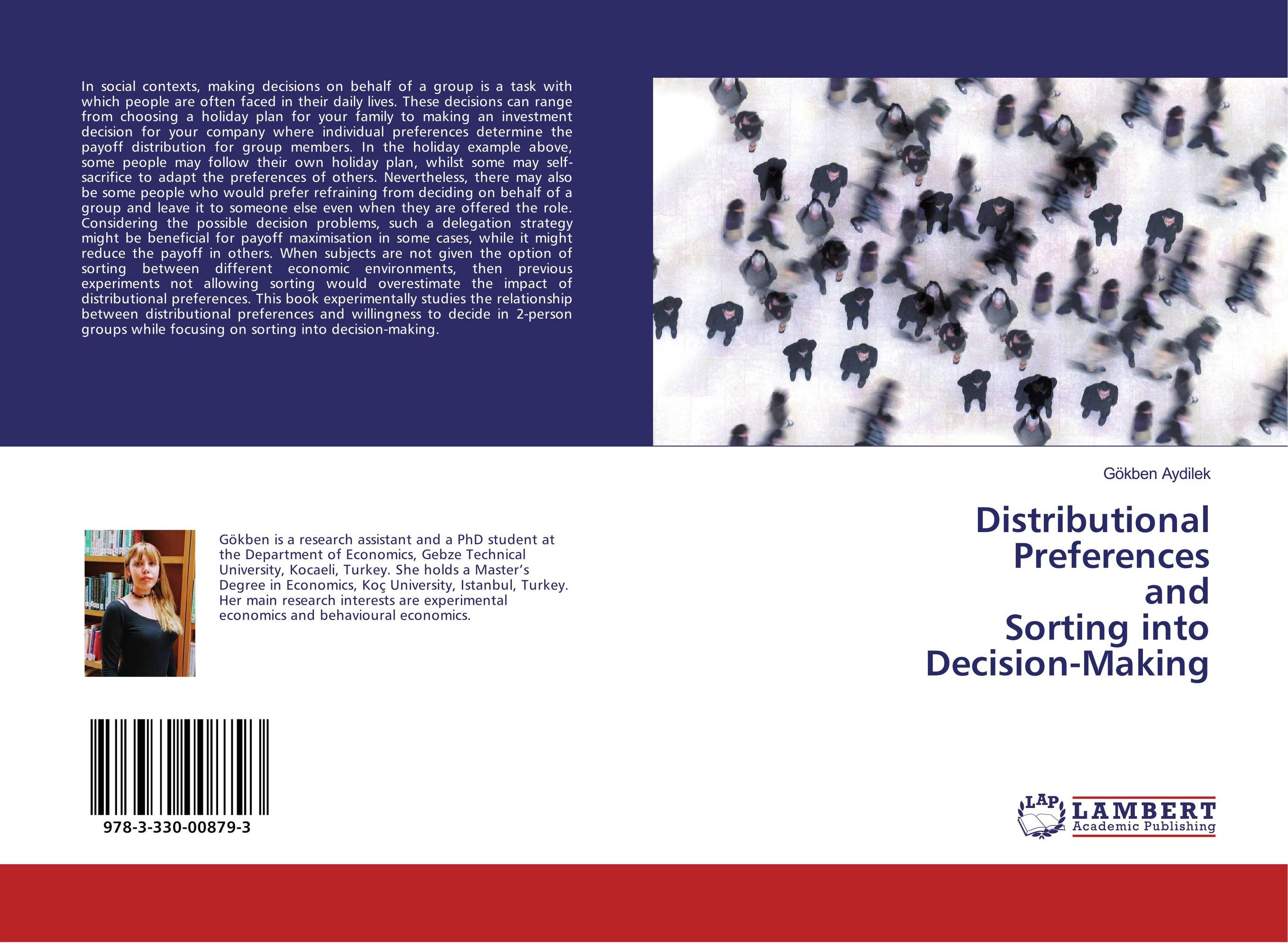| Поиск по каталогу |
|
(строгое соответствие)
|
- Профессиональная
- Научно-популярная
- Художественная
- Публицистика
- Детская
- Искусство
- Хобби, семья, дом
- Спорт
- Путеводители
- Блокноты, тетради, открытки
Distributional Preferences and Sorting into Decision-Making.

В наличии
| Местонахождение: Алматы | Состояние экземпляра: новый |

Бумажная
версия
версия
Автор: G?kben Aydilek
ISBN: 9783330008793
Год издания: 2016
Формат книги: 60×90/16 (145×215 мм)
Количество страниц: 68
Издательство: LAP LAMBERT Academic Publishing
Цена: 21556 тг
Положить в корзину
| Способы доставки в город Алматы * комплектация (срок до отгрузки) не более 2 рабочих дней |
| Самовывоз из города Алматы (пункты самовывоза партнёра CDEK) |
| Курьерская доставка CDEK из города Москва |
| Доставка Почтой России из города Москва |
Аннотация: In social contexts, making decisions on behalf of a group is a task with which people are often faced in their daily lives. These decisions can range from choosing a holiday plan for your family to making an investment decision for your company where individual preferences determine the payoff distribution for group members. In the holiday example above, some people may follow their own holiday plan, whilst some may self-sacrifice to adapt the preferences of others. Nevertheless, there may also be some people who would prefer refraining from deciding on behalf of a group and leave it to someone else even when they are offered the role. Considering the possible decision problems, such a delegation strategy might be beneficial for payoff maximisation in some cases, while it might reduce the payoff in others. When subjects are not given the option of sorting between different economic environments, then previous experiments not allowing sorting would overestimate the impact of distributional preferences. This book experimentally studies the relationship between distributional preferences and willingness to decide in 2-person groups while focusing on sorting into decision-making.
Ключевые слова: Decision Making, Egalitarianism, experimental economics, Gender, leadership, Sorting, willingness to decide, social preferences, efficiency concern, spitefulness



